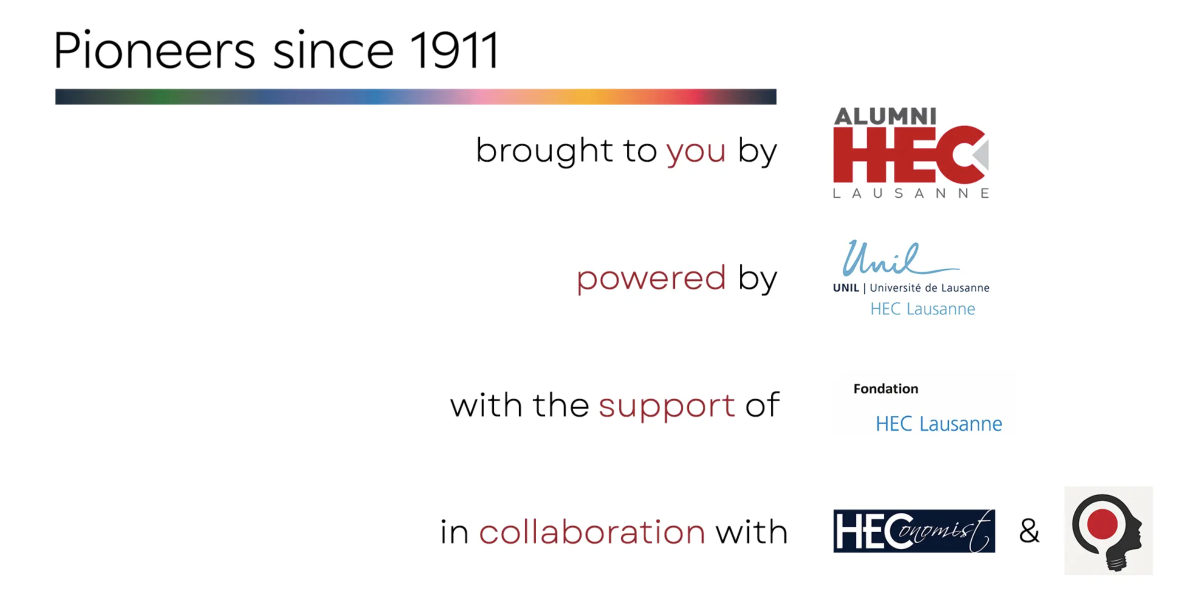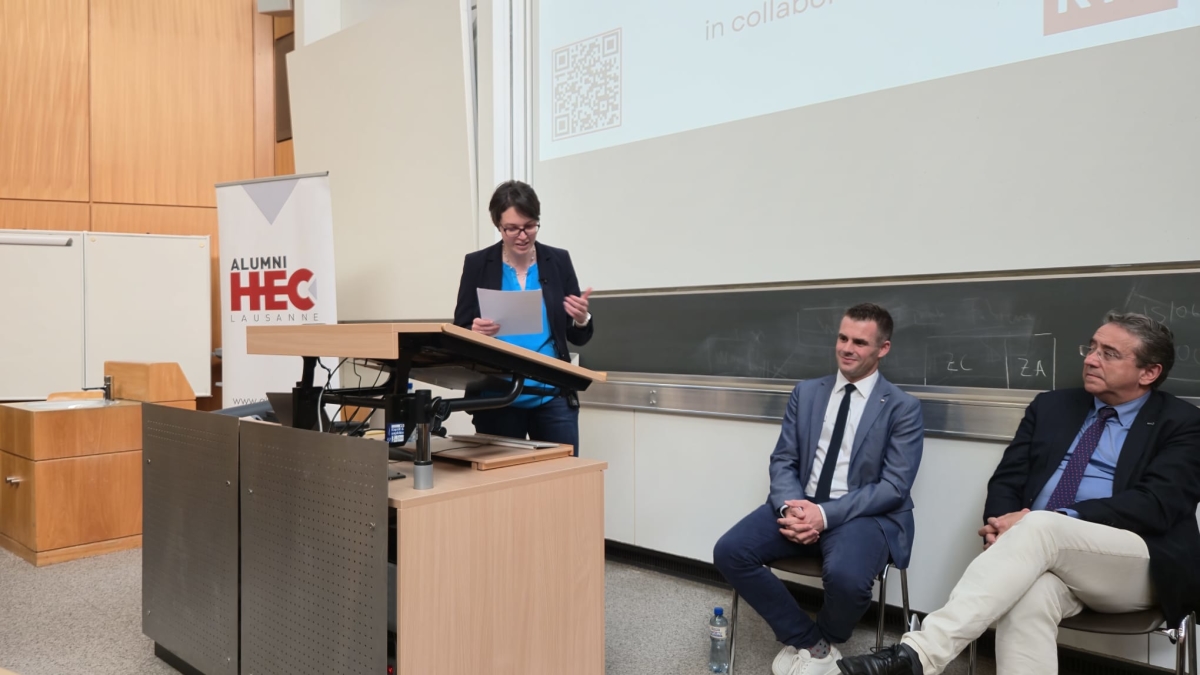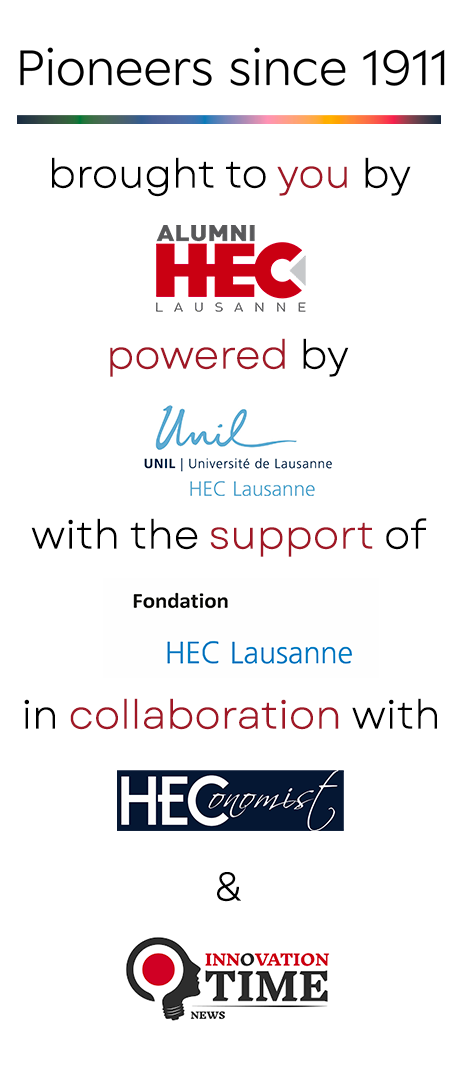12.06.2025
Special Report > Léon Walras - HEC - Taxation
What Taxes Tomorrow? – A Look Back at the May 14th Conference
Taxes are everywhere, yet rarely discussed in depth.
On Wednesday May 14th, in the Léon Walras auditorium at the University of Lausanne, the HEC Alumni Association concluded its “The Role of Taxes in Society” series, part of the Pioneer 1911 project, with a seemingly simple question: What taxes tomorrow?
Introduction
This event followed a journey of exploration launched several months prior. A dive into the faculty archives led to the rediscovery of Léon Walras’s lesser-known 1861 work La théorie critique de l’impôt (The Critical Theory of Taxation), which sparked a historical reflection on the very foundations of taxation.
Later, thanks to the initiative of student journalists, key voices were interviewed to assess the current state of the Swiss tax system. These interviews laid the groundwork for the discussions on May 14, when those same figures came together on stage to confront their views and open the debate on the future of taxation.
The prestigious panel of four included:
-
Pascal Broulis, State Councillor of Vaud and a major figure in cantonal finance for over two decades, shared his expertise on Swiss fiscal federalism.
-
Jean-Pierre Danthine, honorary professor at the University of Lausanne and former vice-president of the Swiss National Bank, offered a macroeconomic and international perspective on tax issues.
-
Samuel Bendahan, economist, Swiss politician, member of the Socialist Party and co-president of the Socialist group in the National Council, where he has represented the canton of Vaud since 2017.
-
Jérôme de Benedictis, economist and member of the Green Liberal Party, mayor of Échandens and deputy in the Vaud Grand Council since 2022.
Taxation as a Democratic Pillar
Kicking off the discussion, Pascal Broulis emphasized the essence of tax consent: “Citizens accept to pay taxes when the state delivers visible, tangible public services that match the level of taxation.”
Far from being a mere technicality, taxation reflects a delicate bond of trust between the government and the governed. At stake is also a political balance around fair burden-sharing.
When addressing the “how much?”, differences quickly emerged.
Jérôme de Benedictis, mayor of Chavannes-près-Renens and FDP deputy, advocated for a maximum 20% income tax threshold, arguing that beyond this point: “economic freedom erodes and incentives become distorted.”
Samuel Bendahan countered: “That’s an ideological construct. Threshold effects exist but are empirically limited.”
Beyond this quantitative debate lies a deeper issue: redistribution.
Inheritance at the Heart of Tensions
One of the most heated topics was the taxation of wealth and inheritance.
Samuel Bendahan was clear: “Inheritances are a major driver of wealth inequality. Taxing them is socially justified.”
Jean-Pierre Danthine supported greater taxation of inheritances, but called for moderate federal harmonization to avoid tax competition between cantons.
This last point is a red line for Pascal Broulis, a long-time defender of cantonal tax sovereignty: “Swiss taxation is built on federalism. Harmonization undermines local democratic accountability.”
Jérôme de Benedictis, operating at both municipal and cantonal levels, highlighted the side effects of intra-cantonal tax mobility: “Middle and upper-class citizens sometimes choose where to live based on taxes. The citizen becomes a strategist.”
Environmental Taxation: A Risky Tool?
The ecological transition naturally sparked debate over the incentive role of taxation.
Should we multiply behavioral taxes to change polluting habits?
Samuel Bendahan was skeptical: “Behavioral taxation is often ineffective or socially unfair. We need binding rules, not incentives.”
In contrast, Jean-Pierre Danthine defended Pigouvian taxes: “If the price of CO₂ is set correctly, the market will internalize externalities.”
Pascal Broulis, however, stressed the importance of social acceptability. Referring to the Yellow Vest crisis in France, he warned: “Any environmental tax perceived as punitive weakens public consent.”
The Tax Challenge of New Technologies
The panel also addressed the still-emerging fiscal challenges posed by technological change: automation, AI, blockchain.
How do you tax robots with no salary or tax residence?
There was broad agreement on the need to rethink tax bases, possibly moving toward indirect levies on productivity, profits, or energy consumption.
On the issue of digital multinationals, Danthine stressed the need for enhanced international cooperation, given these companies' ability to exploit national legal loopholes.
Taxation and Trust
The roundtable concluded by emphasizing the central importance of tax consent: Transparent public spending and simple rules remain the strongest guarantees of legitimacy.
Jérôme de Benedictis noted the need to “make local budgetary procedures clearer, as they are often perceived as opaque.”
Conclusion
Far from populist slogans, the evening demonstrated the technical and political complexity of tax reform. As the shadow of Léon Walras reminded us in the background: To think about taxation is to think about the very structure of society.





